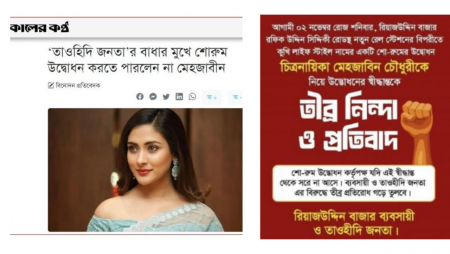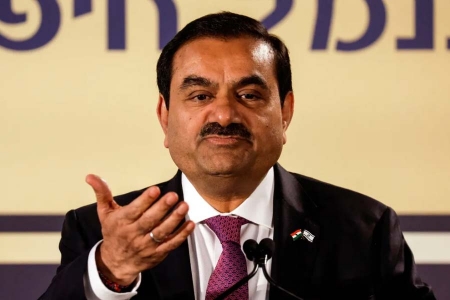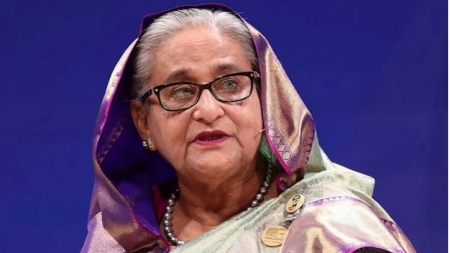Day by day the situation in Bangladesh is deteriorating, with no sign of improvement. This unstable condition seriously concerns all peace loving people both at home and abroad. The country is now almost at a standstill because of violent lawlessness, destruction and hartals.
The lack of national leadership to find a solution to ease the situation is alarming and grave. Our food supply is under threat. Destruction of our railway lines or any communications reminds us of General Winglate’s anti-Ottoman War Strategy in Arabia during the First Word War. The current situation in Bangladesh is similar and should not be taken lightly.
While the Middle East oil is the “blood line” of many industrialised countries, a smooth food supply is our lifeline. Western nations have always been ensuring the smooth supply of oil; like them we should ensure our own food supply. Our future investments are under threat. Internationally, the continuous disturbances and destructions not only discourage foreign investors but also seriously damage the image of the country. This unstable and negative image leads to lack of interest in Bangladesh and its resources. The recent events may also seriously affect the employment of Bangladeshis in foreign countries, particularly in the Gulf states.
Food, peace and security are what the general people want. Since these issues are economically and politically based, they should be solved through diplomacy and wisdom. We know that political play for power and votes during times of crises does not help anyone. Such actions are obstacles to restoring normalcy and peace. Victimising minorities, destroying temples and adding further complications to the original problem only makes matters worse.
Pleading for dialogue between the two major political parties in the country seems to be simply a waste of time and energy. Moreover, dialogue between the two major parties only will obviously not bring any permanent peace in the country or any benefit to the common people. This is a national crisis. Our honourable president could come forward and take an initiative to restore order. He could call an urgent conference that will not be limited to two political parties. This conference should consist of representatives from all political parties, plus senior statesmen, economists, lawyers, industrialists, journalists, leaders of civil organizations, peace activists, educationists and others.
Under the leadership of our president or his nominee, an open negotiation conference held within a fixed time-limit can lead to a solution to ease the immediate crisis. King Zahir Shah of Afghanistan and King Faruq of Egypt used to call this kind of Conference of All Elements whenever there was a time of national crisis. Such dialogues provide immediate views from different sectors, allowing the leaders to make a quick but informed decision. Moreover, they bring people together, irrespective of their different opinions, to negotiate a common national problem.


 অনুগ্রহ করে অপেক্ষা করুন। ছবি আটো ইন্সার্ট হবে।
অনুগ্রহ করে অপেক্ষা করুন। ছবি আটো ইন্সার্ট হবে।








